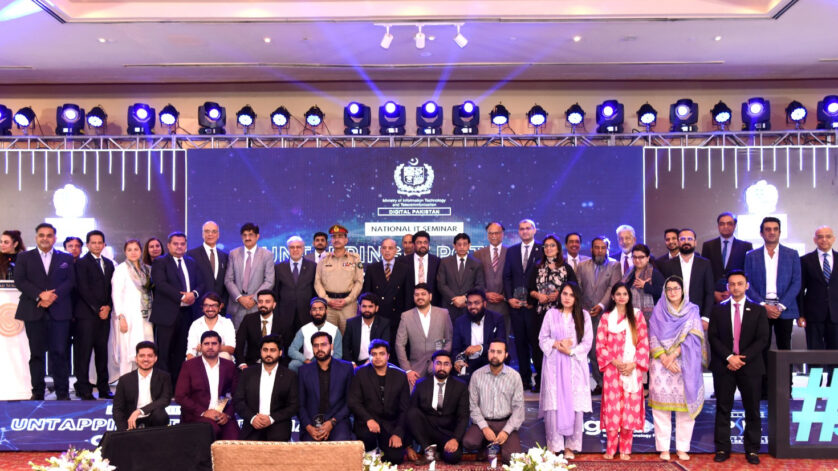Introduction
The Ministry of Information Technology & Telecommunication (MOIT) stands at the forefront of Pakistan’s digital revolution, orchestrating policies, initiatives, and regulations that shape the country’s technological landscape. Situated in the heart of Islamabad, the MOIT serves as the nucleus for innovation, connectivity, and digital transformation. In this comprehensive exploration, we delve into the multifaceted roles of the MOIT, its impact on Pakistan’s socio-economic fabric, and its vision for a digitally empowered future.
1. Evolution and Mandate
Established in 2002, the MOIT emerged from the amalgamation of the Ministry of Science and Technology and the Ministry of Information Technology. Its mandate encompasses a wide array of responsibilities, including:
- Formulating and implementing policies to accelerate ICT (Information and Communication Technology) adoption.
- Promoting digital inclusion and literacy initiatives.
- Regulating telecommunications, broadcasting, and internet services.
- Fostering innovation and entrepreneurship in the tech sector.
- Facilitating e-governance and digital infrastructure development.
Most for you:
2024’s Top 5 Skills To Make Money Online For Students
2. Driving Digital Transformation
At the core of MOIT’s agenda lies the ambition to catalyze Pakistan’s transition into a knowledge-based economy. Through strategic interventions and collaborations with public and private stakeholders, the ministry has spearheaded several transformative initiatives:
- Broadband Penetration: Recognizing the pivotal role of broadband in economic growth, MOIT has endeavored to expand internet access across urban and rural areas. Projects like the National Broadband Policy and Universal Service Fund have been instrumental in bridging the digital divide.
- E-Government Services: MOIT has championed the digitization of government services to enhance efficiency, transparency, and citizen engagement. Initiatives such as the Citizen’s Portal and E-Khidmat Centers exemplify the government’s commitment to leveraging technology for public welfare.
- Digital Skills Development: In collaboration with educational institutions and industry partners, MOIT has launched programs to equip the workforce with digital skills relevant to the 21st-century economy. From coding boot camps to vocational training, efforts are underway to empower youth and professionals with in-demand competencies.
3. Regulatory Framework and Industry Growth
As the regulatory authority for ICT and telecommunications, MOIT plays a pivotal role in shaping industry dynamics and ensuring a conducive environment for innovation and investment. Key aspects of its regulatory framework include:
- Telecom Licensing: MOIT oversees the issuance and renewal of licenses for telecom operators, ensuring compliance with technical standards, spectrum allocation, and consumer protection regulations.
- Cybersecurity: In an era marked by cyber threats and digital vulnerabilities, MOIT is tasked with safeguarding Pakistan’s digital infrastructure through robust cybersecurity policies, incident response mechanisms, and capacity-building initiatives.
- Content Regulation: Balancing freedom of expression with the need for responsible content dissemination, MOIT regulates broadcasting, online media, and social platforms to uphold ethical standards and societal values.
4. International Collaborations and Partnerships
MOIT actively engages with international organizations, governments, and industry bodies to leverage best practices, exchange expertise, and foster global partnerships. Through participation in forums like the ITU (International Telecommunication Union) and collaborations with countries such as China, the USA, and the EU, Pakistan seeks to harness the benefits of cross-border cooperation in technology transfer, research, and trade.
5. Challenges and Opportunities
While MOIT has made significant strides in advancing Pakistan’s digital agenda, several challenges persist:
- Infrastructure Gaps: Despite progress in broadband expansion, rural areas still face infrastructural challenges that impede internet access and connectivity.
- Cyber Threats: The rapid digitization of services has exposed vulnerabilities to cyber attacks, necessitating continuous investment in cybersecurity measures and incident response capabilities.
- Digital Divide: Disparities in digital literacy and access exacerbate socio-economic inequalities, underscoring the need for targeted interventions to promote inclusivity and bridge the digital divide.
However, amidst these challenges lie immense opportunities:
- Youth Demographic: With a large youth population eager to embrace technology, Pakistan possesses a demographic dividend that can drive innovation, entrepreneurship, and economic growth.
- Emerging Technologies: From artificial intelligence to blockchain, emerging technologies offer avenues for leapfrogging traditional development trajectories and positioning Pakistan as a hub for technological innovation and research.
6. Future Outlook and Conclusion
As Pakistan embarks on its journey towards a digitally empowered future, the role of MOIT assumes paramount importance. By fostering an enabling ecosystem for innovation, investing in digital infrastructure, and prioritizing digital skills development, the ministry can unlock the full potential of ICT to drive socio-economic progress and enhance the quality of life for all citizens. As stakeholders converge to chart the course ahead, collaboration, innovation, and inclusivity will remain the guiding principles in MOIT’s quest to shape a brighter, more connected tomorrow for Pakistan.
Must be read:

